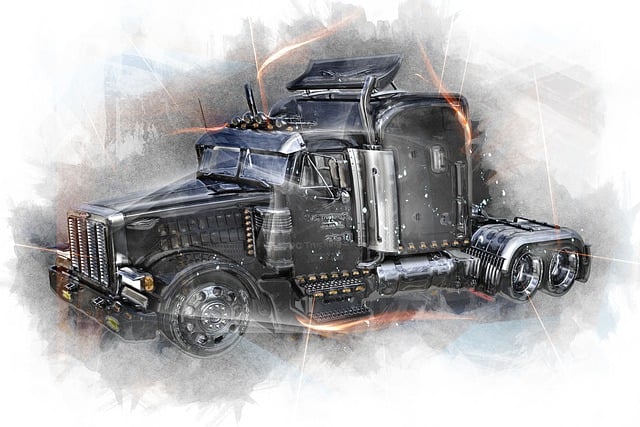1. Analyzing a truck's accident history is crucial for fleet safety and reliability. Checks reveal wear and tear, help identify recalls like GM's rear wheel lockup issue, and guide informed decision-making to mitigate risks. By examining past accidents, managers can target maintenance, reduce breakdowns, and enhance overall vehicle safety and efficiency.
The commercial trucking industry prioritizes safety through meticulous examination of vehicle history. A Commercial Truck Accident History check is not merely a formality; it’s a critical step in identifying potential hazards. Recent recalls, such as General Motors’ vast SUV and truck recall, underscore the need for such due diligence. This article explores why these checks are vital, focusing on uncovering wear and tear and underlying issues to ensure fleet managers make informed decisions, ultimately bolstering vehicle reliability and driver safety.
- Understanding Commercial Truck Accident History: Why It Matters
- The Impact of Recalls on Fleet Management and Safety
- Uncovering Wear and Tear Through Comprehensive Checks
- Identifying Underlying Issues: A Proactive Approach
- Making Informed Decisions: Ensuring Vehicle Reliability and Driver Safety
Understanding Commercial Truck Accident History: Why It Matters

Understanding a vehicle’s past is crucial in the commercial trucking industry. By examining a truck’s accident history, fleet managers gain valuable insights into potential issues and wear and tear. This becomes increasingly significant given recent recalls, such as General Motors’ recall of nearly 462,000 vehicles due to a defect that could cause rear wheel lockup, posing a serious safety risk. Such checks enable informed decision-making, ensuring the safety and reliability of commercial fleets.
The Impact of Recalls on Fleet Management and Safety

Recalls significantly impact fleet management by highlighting potential safety hazards and prompting proactive measures. When a manufacturer issues a recall, fleet managers are obligated to assess their vehicle fleets for affected models. This process involves verifying the specific defects through detailed accident history checks, as past incidents might provide clues about ongoing issues. For instance, General Motors’ recent recall of diesel-powered trucks underscores the importance of such checks, as it targeted a defect that could cause rear wheel lockup—a serious safety concern.
By identifying vehicles with similar historical patterns or underlying problems, fleet managers can make informed decisions regarding repairs, replacements, and maintenance routines. Proactive management not only enhances vehicle safety but also reduces the financial burden associated with accidents and potential legal liabilities. It ensures that commercial trucks on the road meet the highest standards of reliability and safety.
Uncovering Wear and Tear Through Comprehensive Checks

Comprehensive checks are instrumental in uncovering wear and tear that might have gone unnoticed otherwise. By examining a vehicle’s past accidents, mechanics can identify areas prone to damage or degradation. This includes scrutinizing components like brakes, tires, suspension systems, and engines, which often bear the brunt of road conditions and driving habits.
For instance, recurring accidents in certain areas could indicate poor road quality or hidden hazards, prompting fleet managers to schedule more frequent maintenance for those specific parts. Such proactive measures can significantly reduce the risk of breakdowns or malfunctions, ensuring the safety and efficiency of commercial trucks on the road.
Identifying Underlying Issues: A Proactive Approach

By meticulously scrutinizing a vehicle’s past accidents, fleet managers can identify recurring issues or underlying problems that may not be immediately apparent. This proactive approach goes beyond merely checking for recent incidents; it involves analyzing patterns and root causes to prevent future occurrences. For instance, a history of brake failures could indicate wear and tear from frequent heavy loading or a latent manufacturing defect. Proactively addressing such issues through maintenance schedules, component upgrades, or even vehicle replacement can significantly enhance safety and reduce the risk of catastrophic accidents.
Making Informed Decisions: Ensuring Vehicle Reliability and Driver Safety

A thorough Commercial Truck Accident History check is not just a compliance requirement but a critical tool for fleet managers. By examining past accidents and underlying issues, they can proactively ensure vehicle reliability and driver safety. Recent recalls, like General Motors’ significant defect correction, underscore the value of these checks in mitigating potential crash risks. Making informed decisions based on comprehensive accident history data is key to maintaining a safe and efficient trucking operation.



